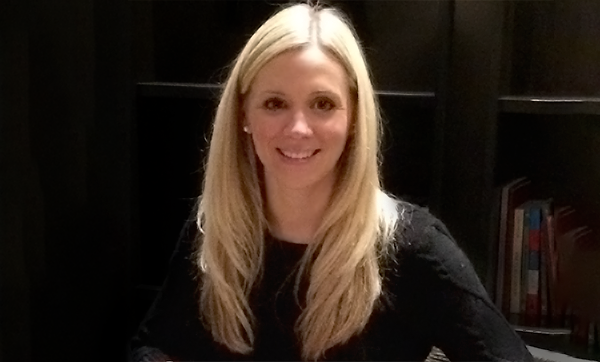‘We’re All Working Towards the Same Goals’.

‘We’re All Working Towards the Same Goals’
Rachel Mitrovich, director of global vaccines, public policy at Merck, says public health efforts to curb vaccine-preventable illnesses should emphasize equitable access to care.
As the world awaits more promising news on the development of a COVID-19 vaccine, many communities around the globe are experiencing a harmful indirect effect of the pandemic: a decline in routine vaccination. Social distancing and other safety measures implemented to stave off the spread of the virus have led to an increase in vaccine-preventable illnesses and deaths, particularly among children in impoverished communities.
As director of Global Vaccines Public Policy at Merck, School of Public Health alum Dr. Rachel Mitrovich (SPH’19) is working hard to reverse this alarming trend.
Prior to the pandemic, Mitrovich oversaw cross-cutting policy research and analysis at Merck, working with countries at the regional and national level to develop evidenced-based policies that strengthen immunization system infrastructure and create equitable access to vaccines.
Now, as COVID-19 continues to hinder many routine vaccination programs around the globe, resulting in an increase in vaccine preventable diseases, Mitrovich is focusing her energy on developing strategies to reinstate and maintain vaccination programs—especially as new rounds of restrictions are being imposed in areas experiencing fresh surges in infections. She is also working to ensure that vaccination is considered an essential healthcare service to prevent further disruptions.
“Increasing vaccination rates and missed doses will ensure that we don’t encounter future disease outbreaks, such as what we are seeing now due to the dips in coverage rates that occurred during earlier lockdown periods,” says Mitrovich, who completed the DrPH program in 2019. Strengthening vaccination efforts can also position these programs as a model for distribution of a future COVID vaccine, she says. “When a COVID vaccine comes to market, governments will need to use the infrastructure routine vaccination programs to deliver the vaccine.
“So it’s not only about restarting these programs, but about making them as effective, efficient, and strong as possible so that they can be scaled up quickly to meet demand,” she says.
Mitrovich first developed an interest in public health and infectious diseases during her first post-undergraduate job, where she conducted cancer stem cell transplant research at Dana-Farber Cancer Institute in Boston. After receiving her MPH in global health from the Milken Institute School of Public Health at George Washington University, she worked on H1N1 mass immunization campaigns, as well as immunization policy research at the state level in Virginia. In 2014, she landed at SPH, and in 2019 she accepted a position at Merck to pursue interests in global immunization policy.
“Global policy and domestic policy are very different—domestic policy involves administrative decisions that are directly related to national issues,” Mitrovich says. “Global policy is more focused on elevating the discourse on evidence-based research, and turning that into evidence-based policies. The DrPH program provided a strong grounding in quantitative and qualitative skills, internal and external management, and communication, to translate research into action through policy,” she says.
Effective communication is especially critical when conveying the need for policy changes to various audiences, says Mitrovich.
“In global immunization, you need to be able to speak with a minister of finance to articulate why a budget needs to be increased to support a routine vaccination program, or talk to global stakeholders about the full societal value of vaccination,” she says. “You have to understand key players in the ecosystem and ground your communication in the data and the evidence that resonates with them.”
Mitrovich says her collaboration between the private and public sector on public health issues is one of the most fulfilling aspects of her job.
“There is an understanding that we are all working towards the same goals,” she says. “At Merck, everyone is invested in public health and in saving lives. To me, that moral compass of the work is really important in making sure that the fight against vaccine-preventable diseases is really about equitable and broad access to this public health intervention across the globe.”